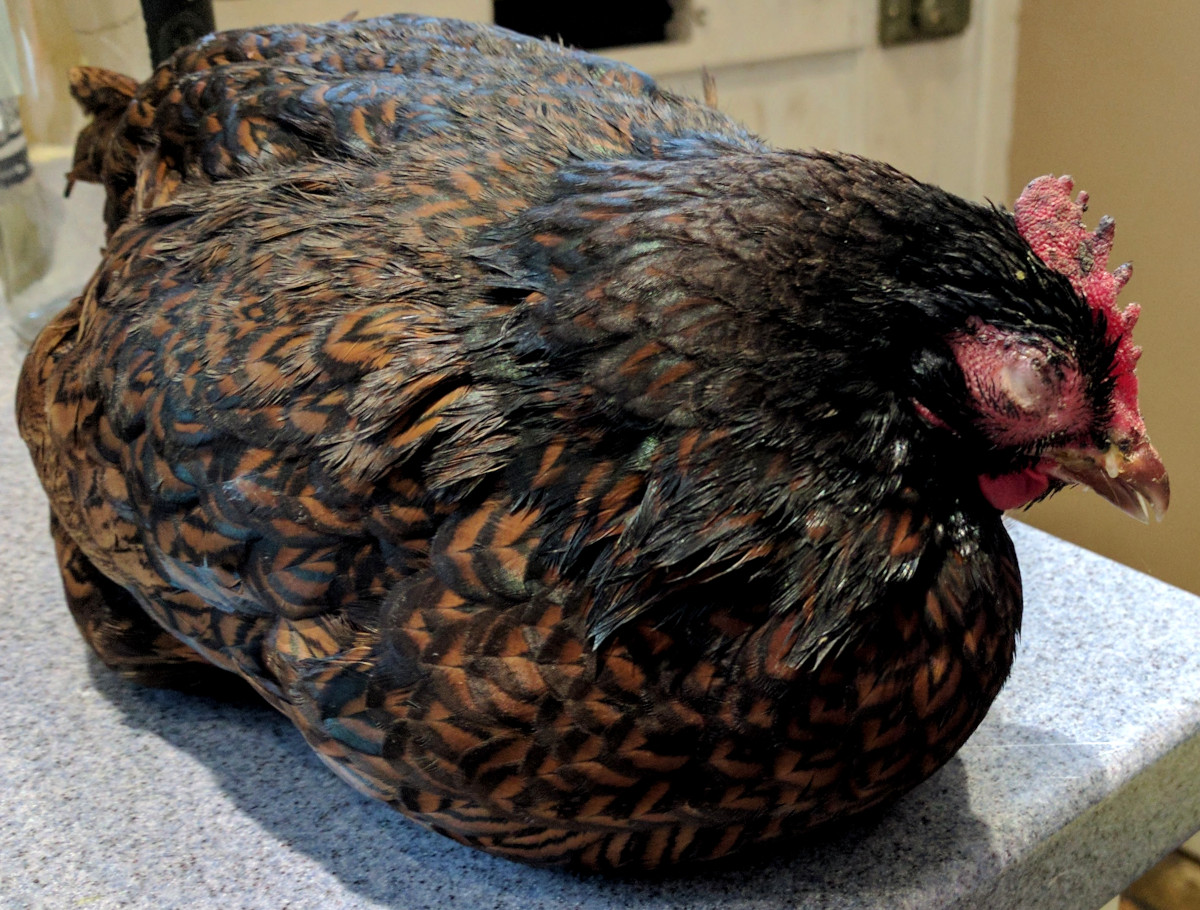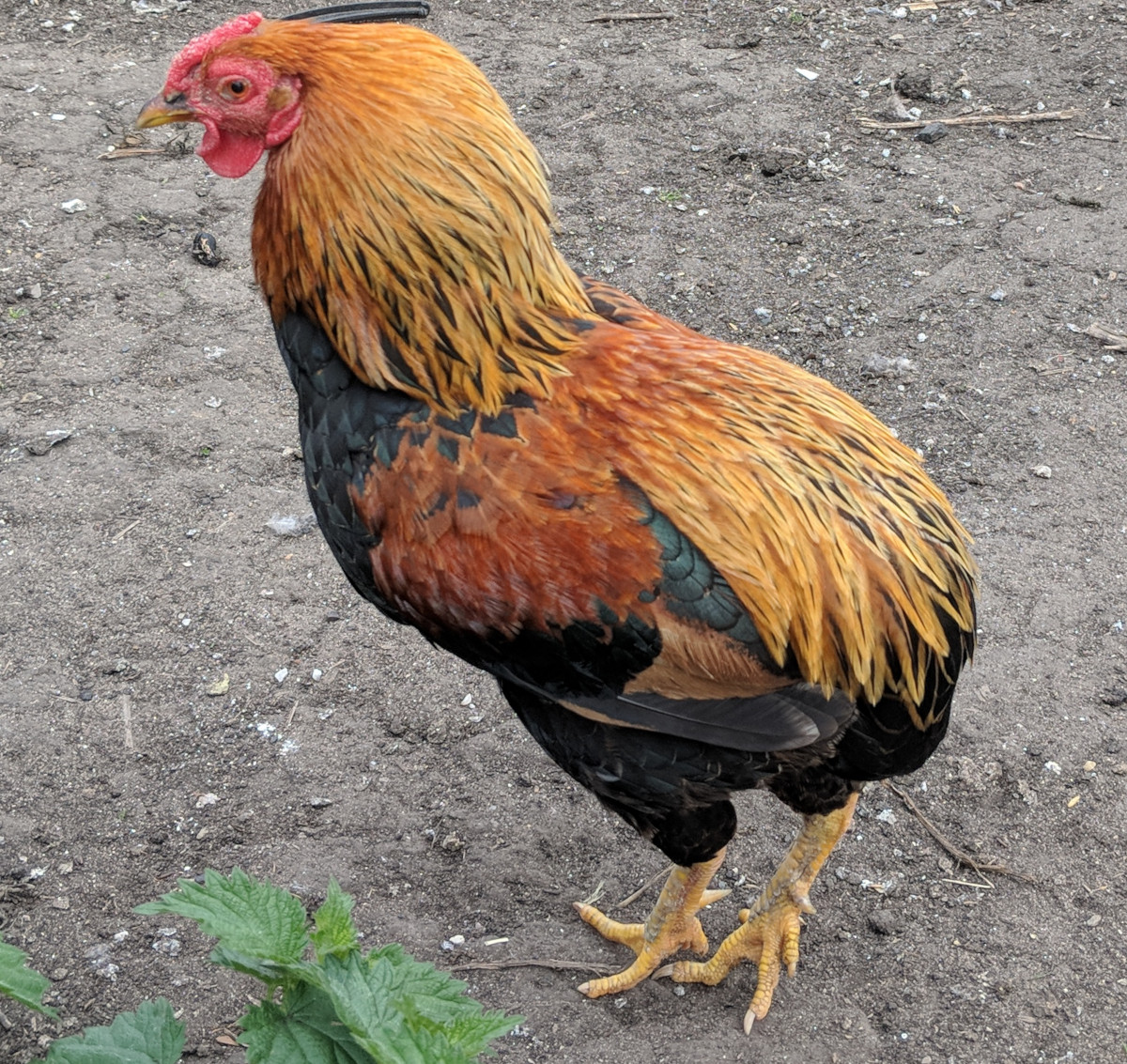Common chicken diseases, their causes, symptoms and treatments.

The most common chicken diseases are:
- Avian Influenza (AI) is a highly contagious viral disease that can cause respiratory problems, diarrhoea, and neurological symptoms in chickens.
- Coccidiosis is a parasitic disease that can cause diarrhoea, weight loss, and dehydration in chickens.
- Fowl Pox is a viral disease that can cause warts on the skin, comb, and wattles of chickens.
- Marek's Disease is a viral disease that can cause paralysis and neurological problems in chickens.
- Newcastle Disease is a viral disease that can cause respiratory problems, paralysis, and sudden death in chickens.
- Salmonellosis is a bacterial disease that can cause diarrhoea, fever, and loss of appetite in chickens.
- Staphylococcosis is a bacterial disease that can cause swollen joints, abscesses, and lameness in chickens.
- Viral Bronchitis is a viral disease that can cause respiratory problems, coughing, and sneezing in chickens.
Here is a table of the most common chicken diseases, their causes, symptoms, and treatment options:
| Disease Name | Causes | Transmission | Symptoms | Treatment |
|---|---|---|---|---|
| Avian Influenza | Highly contagious viral disease | Direct contact with infected birds, their faeces, or contaminated surfaces | Respiratory issues, decreased egg production, coughing, sneezing, fever, sudden death | No cure or specific treatment, supportive care only. Affected birds should be isolated and euthanized. |
| Coccidiosis | Caused by the protozoan parasite Eimeria | Spread through direct contact with infected birds or their feathers or dander, as well as contaminated surfaces | Diarrhoea, lethargy, decreased appetite, decreased egg production | Medicated feed or water with anticoccidial drugs, good sanitation practices, management of litter moisture levels. |
| Salmonellosis | Any one or more members of the bacterial genus Salmonella (Family Enterobacteriaceae). | Chickens get infected with Salmonella by ingestion (eating), inhalation (breathing in ), or abrasion (cuts in the skin). | Diarrhoea, fever, and loss of appetite. | Salmonellosis can be treated with antibiotics, but prevention is the best option. Good hygiene and sanitation practices can help to prevent the spread of Salmonellosis. |
| Fowl Cholera | Contagious, bacterial disease caused by Pasteurella multocida. | Contact with infected birds, wild birds or mammals or a contaminated environment. | Respiratory issues, swollen joints, diarrhoea, sudden death | Antibiotics, good hygiene and sanitation, isolation of affected birds. |
| Mycoplasma | Bacteria. | Transmission can be through the egg from the breeder birds or directly bird to bird through dust, feathers, aerosols, faeces and vectors such as people and equipment. | Mycoplasma gallisepticum (MG) and Mycoplasma synoviae (MS) infections are characterised by bubbly or foamy eyes, sneezing, respiratory rales, nasal release, coughing, and conjunctivitis. | Most strains of Mycoplasma are susceptible to various broad-spectrum antibiotics agents, including tylan. |
| Pullorum | Salmonella enterica Pullorum | Transmission can be from parent to offspring or contact with infected birds, feed water or litter. | Very high mortality in young chickens and turkeys, birds huddle near the heat source, stop eating, weak, depressed, and have white faecal material pasted to the vent area. Birds may have respiratory disease, blindness, or swollen joints. | No recommended treatment. Birds are culled. |
Staphylococcosis Omphalitis, or infection of the yolk sac, is a common disease caused by S aureus in young chicks. | Staphylococcus | Access via skin wounds, injection sites. | Swollen joints, abscesses, and lameness. | Staphylococcus can be treated with antibiotics, but prevention is the best option. Good hygiene and sanitation practices can help to prevent the spread of Staphylococcus. |
| Infectious Bronchitis | Highly contagious viral disease | Spread through direct contact with infected birds, their faeces, or contaminated surfaces. | Respiratory issues, coughing, sneezing, nasal discharge, decreased egg production | No specific treatment, supportive care only. Vaccination can help prevent infection. |
| Marek's Disease | Marek's disease (MD) is a tumour-causing viral disease of chickens of the Herpesvirus family. | The mode of transmission of this disease is through the inhalation of infected material from the environment. | Paralysis, difficulty walking, vision problems, weight loss, tumours | No specific treatment. Vaccination can help prevent infection. |
| Newcastle Disease | Viral infection that affects chickens and other birds | Spread through direct contact with infected birds, their faeces, or contaminated surfaces | Respiratory issues, diarrhoea, nervous system symptoms, sudden death | No specific treatment. Vaccination can help prevent infection. |
| Fowl Pox | Avipoxvirus in chickens, turkeys and other poultry. | Contact with infected birds, certain mosquitoes and biting insects. | Lesions on skin, respiratory issues, decreased egg production | No specific treatment, supportive care only. Vaccination can help prevent infection. |
Gumboro Disease. Infectious bursal disease | Virus. | Contact with infected birds, droppings feed or water. | Diarrhoea, respiratory issues, nervous system symptoms, ruffled feathers, sudden death | No specific treatment. Vaccination can help prevent infection. |
| Egg Drop Syndrome | Virus. | Contact with droppings, infected birds, eggs, water or feed. Wild birds and some insects are considered likely sources of infection. | Decreased egg production, soft or misshapen eggs | No specific treatment. Vaccination can help prevent infection. |
| Botulism | Caused by the ingestion of a toxin produced by a bacterium Clostridium botulinum. | Poor hygiene or access to rotting or decaying material. | Paralysis, difficulty breathing, sudden death | Supportive care, such as intravenous fluids and respiratory support. Prevention involves good sanitation practices and proper disposal of dead animals. |
| Infectious Coryza | Caused by a bacterium known as Avibacterium paragallinarum | Infectious Coryza can be ingested, inhaled or spread via contaminated feed or water or by the movement of chickens or poultry products from one flock to another or by the human keeper bringing the infection in. | Infectious Coryza is characterised by nasal discharge, sneezing, and swelling of the face under the eyes and is an intense respiratory infection | Treatment with antibiotics for 7 to 10 days as a flare-up may occur if treatment is too short or stopped prematurely. |
It is important to note that this is not a comprehensive list of chicken diseases, and symptoms and treatments may vary depending on the specific disease.
Below: A sick Wyandotte cockerel. The hunched back, sometimes called roach back, and awkward gait is a definite indication this chicken is ill.

If you suspect that your chickens are sick, it is important to consult with a veterinarian for diagnosis and treatment.
Here are some tips for preventing disease in chickens:
- Keep your coop clean. Chickens are susceptible to diseases that are spread through contact with contaminated surfaces. Be sure to clean your coop regularly, and remove any droppings or other waste.
- The biggest vector for infection in the flock is the keeper. Make sure you do not bring viruses, parasites and other pathogens back to your flock from places you visit.
- Provide your chickens with a clean, safe environment. Chickens need a place to roam and forage, as well as a place to lay their eggs. Make sure your coop is predator-proof, and that your chickens have access to fresh air and sunlight.
- Feed your chickens a nutritious diet. A healthy diet will help your chickens stay strong and resistant to disease. Be sure to feed your chickens a balanced diet that includes plenty of protein, carbohydrates, and vitamins.
- Keep your chickens free of stress. Stress can weaken your chickens' immune system and make them more susceptible to disease. Be sure to provide your chickens with a calm and peaceful environment.
- Vaccinate your chickens. There are a number of vaccines available that can help protect your chickens from common diseases. Be sure to talk to your veterinarian about which vaccines are right for your flock.
- Quarantine new chickens. If you bring new chickens into your flock, be sure to quarantine them for at least 30 days. This will help to prevent the spread of disease from new chickens to your existing flock.
- Monitor your chickens for signs of disease. Be sure to check your chickens regularly for signs of disease, such as diarrhoea, coughing, or sneezing. If you notice any signs of illness, be sure to consult with your veterinarian.
Still need help identifying your chickens disease from its symptoms.
